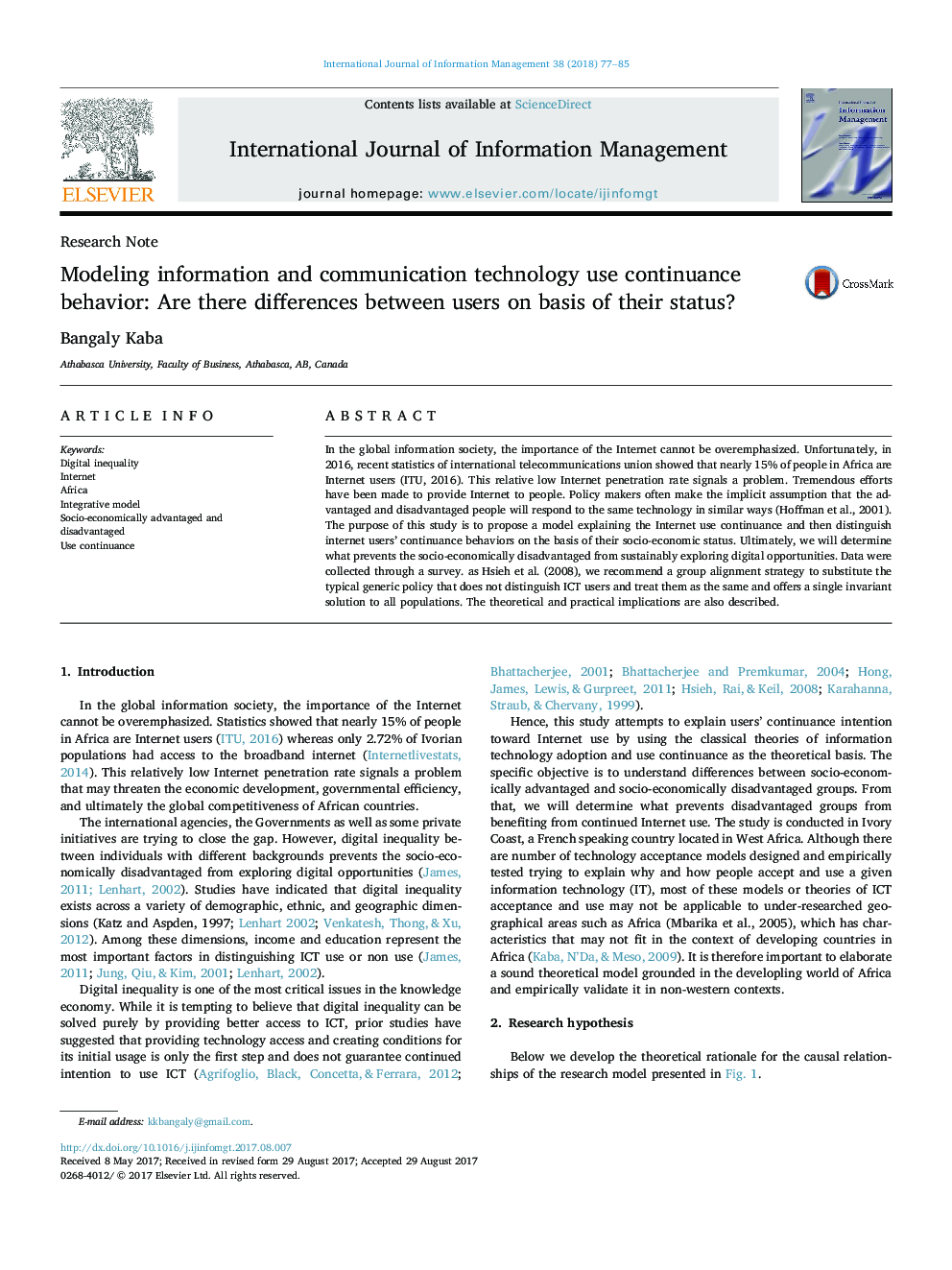| Article ID | Journal | Published Year | Pages | File Type |
|---|---|---|---|---|
| 5110710 | International Journal of Information Management | 2018 | 9 Pages |
Abstract
In the global information society, the importance of the Internet cannot be overemphasized. Unfortunately, in 2016, recent statistics of international telecommunications union showed that nearly 15% of people in Africa are Internet users (ITU, 2016). This relative low Internet penetration rate signals a problem. Tremendous efforts have been made to provide Internet to people. Policy makers often make the implicit assumption that the advantaged and disadvantaged people will respond to the same technology in similar ways (Hoffman et al., 2001). The purpose of this study is to propose a model explaining the Internet use continuance and then distinguish internet users' continuance behaviors on the basis of their socio-economic status. Ultimately, we will determine what prevents the socio-economically disadvantaged from sustainably exploring digital opportunities. Data were collected through a survey. as Hsieh et al. (2008), we recommend a group alignment strategy to substitute the typical generic policy that does not distinguish ICT users and treat them as the same and offers a single invariant solution to all populations. The theoretical and practical implications are also described.
Related Topics
Social Sciences and Humanities
Business, Management and Accounting
Management Information Systems
Authors
Bangaly Kaba,
